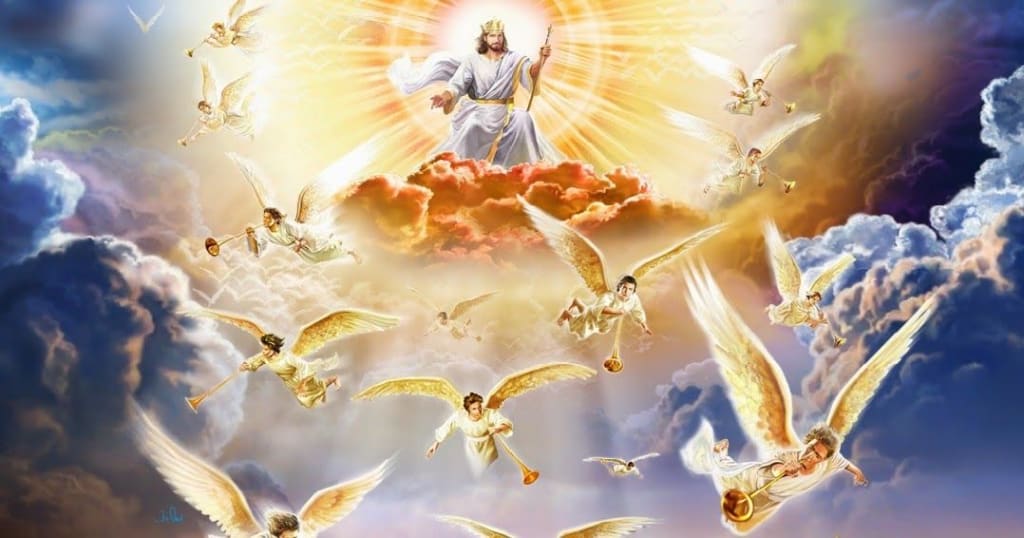Christian Eschatology
Explore the beliefs and prophecies regarding the Second Coming of Christ, the Rapture, and the Final Judgment in Christianity.

Christian eschatology is the branch of theology that deals with beliefs and prophecies concerning the end times. It explores the Second Coming of Christ, the Rapture, and the Final Judgment, which are central concepts in Christianity. These beliefs have shaped the religious worldview of millions of Christians throughout history, influencing both personal spirituality and the interpretation of world events. This essay will delve into Christian eschatology, examining the core beliefs, biblical foundations, and various interpretations within the Christian tradition.
The Second Coming of Christ
At the heart of Christian eschatology is the belief in the Second Coming of Christ. This event is seen as the culmination of human history, where Jesus returns to Earth in glory and power. The concept of the Second Coming is rooted in the New Testament, particularly in the Gospels and the writings of the Apostle Paul.
In the Gospels, Jesus himself foretells his return. In Matthew 24:30, he says, "Then will appear in heaven the sign of the Son of Man, and then all the tribes of the earth will mourn, and they will see the Son of Man coming on the clouds of heaven with power and great glory." This imagery of Christ returning on the clouds symbolises his divine majesty and authority.
Apostle Paul also discusses the Second Coming in 1 Thessalonians 4:16-17, where he describes the Rapture, a significant aspect of Christian eschatology: "For the Lord himself will descend from heaven with a cry of command, with the voice of an archangel, and with the sound of the trumpet of God. And the dead in Christ will rise first. Then we who are alive, who are left, will be caught up together with them in the clouds to meet the Lord in the air, and so we will always be with the Lord."
The Second Coming is viewed as a moment of divine intervention when Jesus will judge the living and the dead, bringing salvation to believers and judgment to the unrepentant. This belief serves as a source of hope and encouragement for Christians, as it promises ultimate justice and the fulfilment of God's plan.
The Rapture
The concept of the Rapture is closely associated with the Second Coming and plays a significant role in Christian eschatology, particularly in certain branches of Christianity. The term "Rapture" is not explicitly mentioned in the Bible but is derived from passages such as 1 Thessalonians 4:17, which speaks of believers being "caught up" to meet the Lord in the air. The Rapture is often interpreted as the moment when true Christians will be taken up to be with Christ before a period of tribulation on Earth.
There are various interpretations of the timing of the Rapture within Christian eschatology:
a. Pre-Tribulation Rapture: This view suggests that the Rapture will occur before a period of great tribulation on Earth. Believers will be taken up to be with Christ, avoiding the suffering and chaos of the end times.
b. Mid-Tribulation Rapture: Some Christians believe that the Rapture will take place midway through the tribulation period, offering some respite to believers before the final events unfold.
c. Post-Tribulation Rapture: In this view, the Rapture occurs after the tribulation, and believers will endure the trials and tribulations before being gathered to be with Christ.
d. Pre-Wrath Rapture: This perspective posits that the Rapture will happen before the wrath of God is poured out on the world but not necessarily before all tribulation.
It is important to note that the concept of the Rapture is not universally accepted among Christians, and many denominations and theologians hold differing views on its timing and significance. However, it has become a prominent feature of eschatological discussions, particularly in evangelical and dispensationalist circles.
The Final Judgment
The Final Judgment is another key component of Christian eschatology, closely linked to the Second Coming of Christ. It is the event in which God will judge all humanity, both the living and the dead, based on their faith, deeds, and relationship with Christ.
The biblical basis for the Final Judgment can be found in various passages. In Matthew 25:31-46, Jesus describes the separation of the righteous from the wicked, with the righteous inheriting eternal life and the wicked facing eternal punishment. Revelation 20:11-15 also depicts a great white throne judgment, where the books are opened, and individuals are judged according to their works.
The Final Judgment underscores the importance of faith in Christ and living a righteous life according to biblical principles. It is the moment when all will be held accountable for their choices and actions. This belief serves as a powerful motivator for Christians to live in accordance with their faith and to share the gospel with others, emphasising the eternal consequences of one's choices.
Interpretations and Diversity within Christian Eschatology
Christian eschatology is not monolithic, and interpretations of end-time events vary widely among different denominations and theological traditions. Some Christians focus on a more literal interpretation of eschatological prophecies, while others adopt symbolic or allegorical approaches. Here are some notable interpretations:
a. Preterism: Preterism suggests that many eschatological prophecies, particularly those found in the New Testament, were fulfilled in the past, often within the first century. This view minimizes the expectation of future cataclysmic events.
b. Historicism: Historicists view eschatological prophecies as unfolding throughout history, with various historical events and figures fulfilling these prophecies over time. This perspective often identifies the Roman Catholic Church or specific historical figures as the Antichrist.
c. Idealism: Idealists interpret eschatological passages symbolically, emphasizing the ongoing spiritual battle between good and evil rather than specific future events. They see these prophecies as providing spiritual insight rather than literal predictions.
d. Dispensationalism: Dispensationalism, prominent in many evangelical circles, emphasizes the division of history into distinct dispensations or periods. It often includes a detailed timeline of future events, such as the Rapture, tribulation, and the millennium.
e. Amillennialism: Amillennialists reject the notion of a literal thousand-year reign of Christ on Earth (millennium) and see it as symbolic. They believe that Christ's reign is spiritual and that the Church is currently in the "millennium" age.
Conclusion
Christian eschatology holds a central place in Christian theology, shaping believers' understanding of the end times, the Second Coming of Christ, the Rapture, and the Final Judgment. These beliefs provide hope, motivation, and a sense of accountability for Christians as they navigate the complexities of life in anticipation of the ultimate fulfilment of God's plan.
It is crucial to recognise the diversity of interpretations within Christian eschatology, reflecting the rich tapestry of Christian thought and theology. While there are varying perspectives on the timing and nature of end-time events, the common thread that unites Christians is the belief in the ultimate sovereignty of God and the promise of eternal life through faith in Christ.





Comments (1)
Very insightful. Thank you Papa for this.